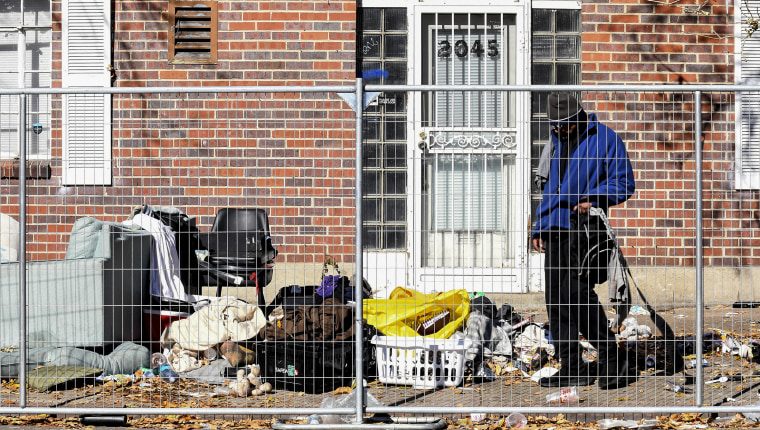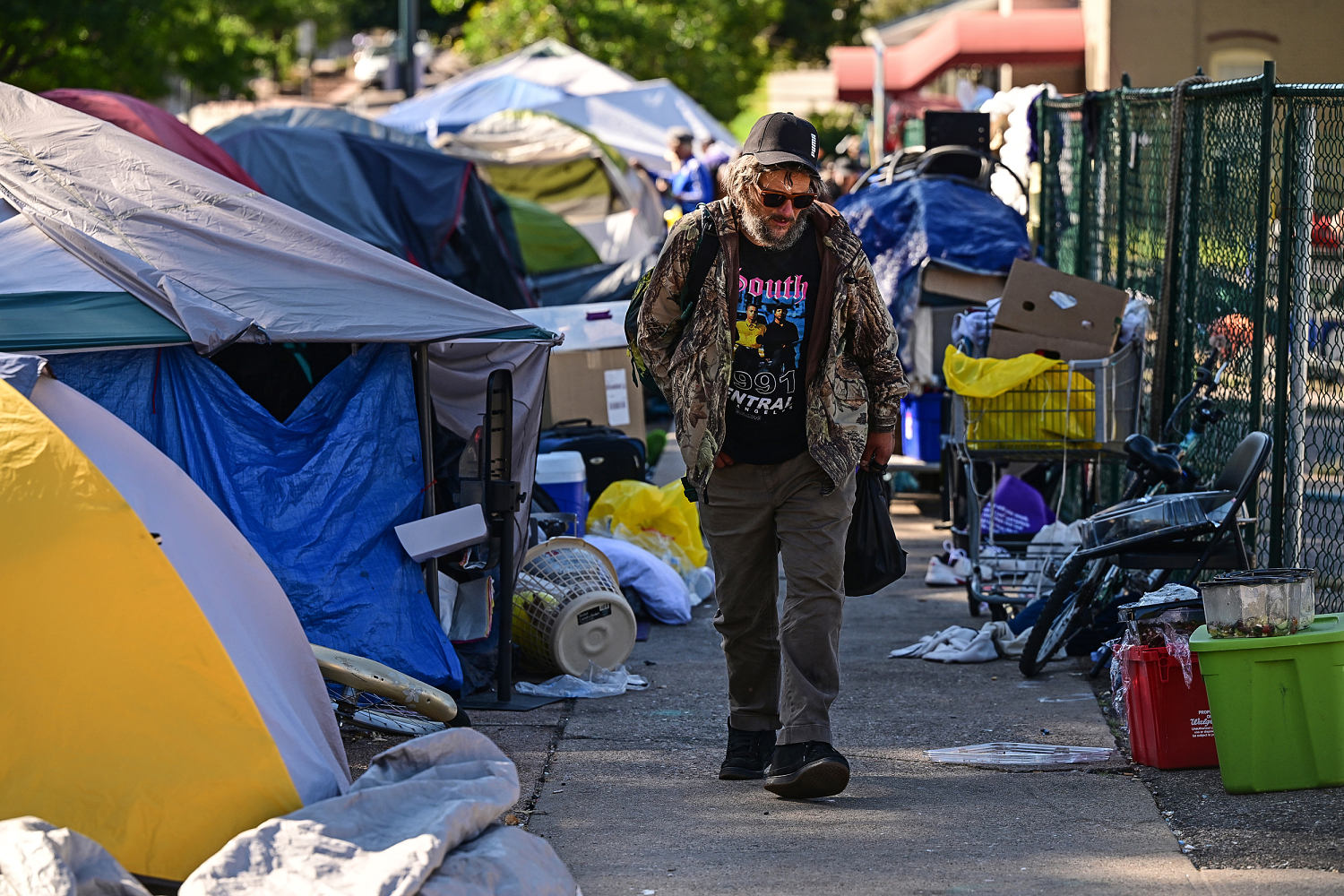DENVER — As incoming Mayor Mike Johnston was declaring a state of emergency on homelessness last year and launching an effort to significantly reduce the unsheltered population, an unprecedented number of people living on the streets were dying.
At least 311 homeless people died in Denver last year, more than any other year, according to city officials and organizations that serve the unsheltered. Most died from drug overdoses, but infectious disease, environmental exposure and blunt force trauma also contributed. The previous year, 263 people died, according to the Colorado Coalition for the Homeless, which conducts an annual survey.
Johnston is tackling an issue that has confounded communities across the country. Like Johnston, Los Angeles Mayor Karen Bass ran on a campaign to significantly reduce the number of people living on the streets, and she declared a state of emergency on her first day in office. But her Inside Safe plan has been met with mixed results, as an estimated 46,000 people bed down in tent encampments each night.
Advocates for the homeless say Johnston’s plan to house 1,000 unsheltered residents within his first few months in office and another 1,000 by the end of this year, could go far to reduce deaths fueled by the rise in fentanyl and other deadly street drugs that have proliferated in the area.
The mayor’s plan provides addiction and mental health counseling and treatment, as well as job training and other services aimed at helping them gain stability.
Johnston, a Democrat, has so far found transitional housing for 1,135 unsheltered residents in his nearly six months in office. But the debate over whether he can get the job done permanently continues as housing prices soar and affordable housing inventory shrinks. The average rent for a one-bedroom apartment in Denver is $1,656 a month, according to apartments.com, representing a 21% decrease from 2023 to 2024.
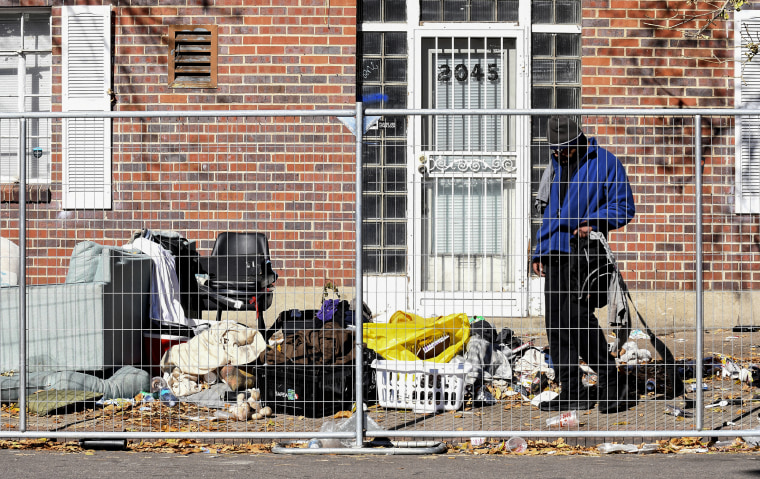
Michael Macomber, who until two weeks ago had been sleeping under a tent in downtown Denver, is a beneficiary of Johnston’s plan and is now living in a hotel the city acquired and converted into living quarters.
“They give us three meals a day and cable TV. The mayor is doing the right thing,” said Macomber, 49, adding he became homeless two decades ago after getting hooked on opioids following a traffic accident.
A total of 1,423 people were on the streets in Denver on Jan. 30, 2023, during the annual point-in-time tally, which tracks unhoused residents on a single night.
Some advocacy groups estimate the homeless population hovers around 8,000 if people living with family or friends or in shelters and group homes are included, while Johnston said his office is focused on housing at least 2,000 people by year’s end.
Neither figure accounts for the estimated 36,000 migrants who crossed the U.S.-Mexico border and either traveled to Denver on their own or were bussed by Texas Gov. Greg Abbott, a Republican who started sending migrants to so-called sanctuary cities last year because he said his state was overwhelmed with them.
Denver is among dozens of self-declared sanctuary cities and counties in the U.S. whose laws can protect migrants from deportation or prosecution.
The city’s migrant population is among the largest in the country, Johnston previously told NBC News. Denver spent $32 million last year to house, feed and provide services to them and is projected to spend $180 million this year, the mayor said.
Johnston said his priority is to find permanent homes for the nonmigrant homeless people that his plan will place in transitional housing. He spent $46 million of the city’s $1.6 billion budget last year to convert hotel rooms and to build three tiny-home villages.
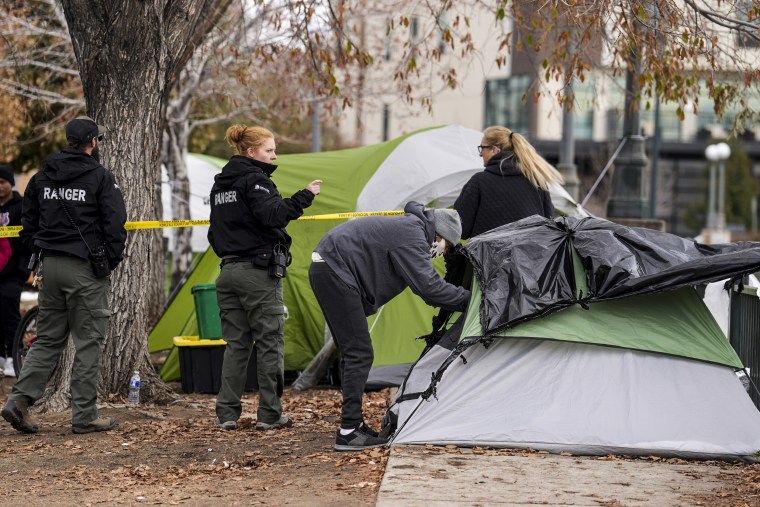
Roughly $119 million is slated for homeless initiatives this year, with the state contributing another $24 million.
Johnston said the city will not impose deadlines on residents to leave their subsidized transitional housing, but he hopes they can secure jobs and permanent housing that they pay for themselves within three to six months.
“We don’t ever force them back out on the streets. There’s no formal length-of-stay requirement,” Johnston said. “But our goal is to quickly get them stabilized and get them connected to services, if they need mental health or addiction support or workforce training and prepare to apply for a job.”
He said the city has 500 vouchers available to help pay rents for the first few months residents move into permanent housing, but then they are on their own. Those who do not receive vouchers will still get help from the city to find affordable shelter.
Andy McNulty, a Colorado civil rights attorney who has provided free legal services to homeless advocates in Denver, said Johnston’s approach is deeply flawed.
“There is no pathway to permanent housing,” McNulty said. “Denver is too expensive and there isn’t enough affordable housing to go around. You can’t just put people in hotel rooms and expect to solve the problem.”
Terese Howard, a member of House Keys Action Network Denver, an advocacy group, said the plan will not be effective without a sizable investment in public housing.
“That’s the direction we need to go,” she said.
But Cathy Alderman, public policy officer for the Colorado Coalition for the Homeless, said Johnston’s plan could save lives.
“The most important part of this is what comes next and are we moving these people out of temporary spaces and into long-term housing, because that’s the only way to truly resolve homelessness,” she said.
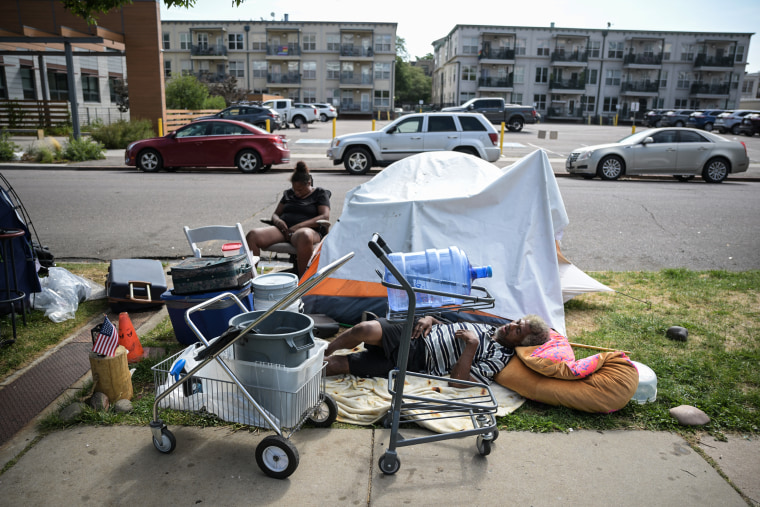
Cheris Kline Berlinberg, 36, who lives two blocks from a converted hotel, said Johnston’s plan was rushed and did not take into consideration the concerns of neighbors, such as fears of declining property values and increased crime.
“It was too much, too fast. He sacrificed and experimented with the community. It’s being forced down our throat,” said Berlinberg. “Something has to be done to help the homeless, but the mayor has a responsibility to those already living in the community.”
Source: | This article originally belongs to Nbcnews.com
